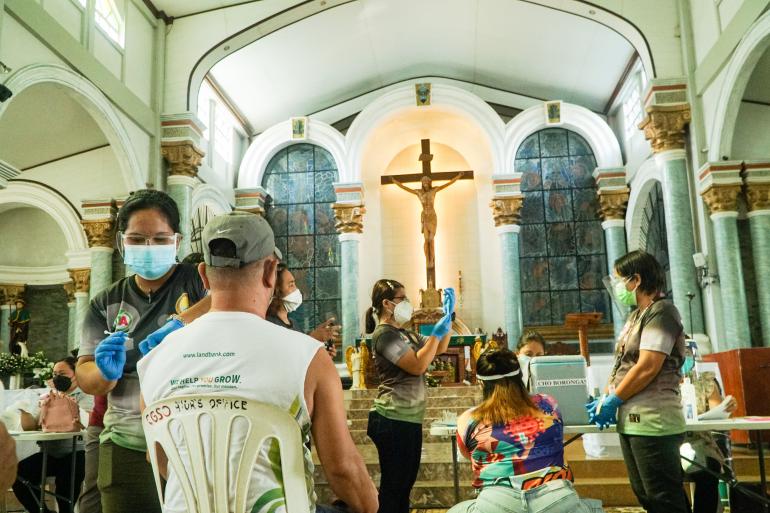Churches in Philippine capital open doors to provide aid to needy during lockdown

Several Catholic churches in the Philippine capital have opened its doors to provide people in need, especially those most affected by the implementation of the strict community quarantine due to the pandemic this week.
In the Diocese of Kalookan, 12 parishes have opened its churches to serve as vaccination sites in the cities of Malabon, Navotas, and Caloocan.
Father Rene Richard Bernardo, head of the Health Care Ministry of the diocese, said five additional parishes will open in the coming days to ensure that people will be vaccinated.
“We asked the parish health care ministry to make a list of people who will be vaccinated and we assist them,” said the priest.
He said people can also register online and the elderly are allowed to go to any vaccination center any time.
In the Diocese of Cubao, Father Ronaldo Santos, director of the diocesan Caritas, assured the faithful of the Church’s presence, saying that it is “very important” to provide hope.
“There’s a need for physical distancing, but we don’t need to distance ourselves from the needs of the people,” he said.
Father Efren Basco of the Diocese of Malolos said the Church should always be the source of inspiration for people, especially those who experience hardships.
“The role of the Church is important because people look up to the Church as their last recourse,” said the priest in an interview with Radio Veritas 846.
Several churches have been conducting food distribution programs and setting up community pantries to provide for those who are most affected by the pandemic. - LiCAS.news
Radio Veritas Asia (RVA), a media platform of the Catholic Church, aims to share Christ. RVA started in 1969 as a continental Catholic radio station to serve Asian countries in their respective local language, thus earning the tag “the Voice of Asian Christianity.” Responding to the emerging context, RVA embraced media platforms to connect with the global Asian audience via its 21 language websites and various social media platforms.











